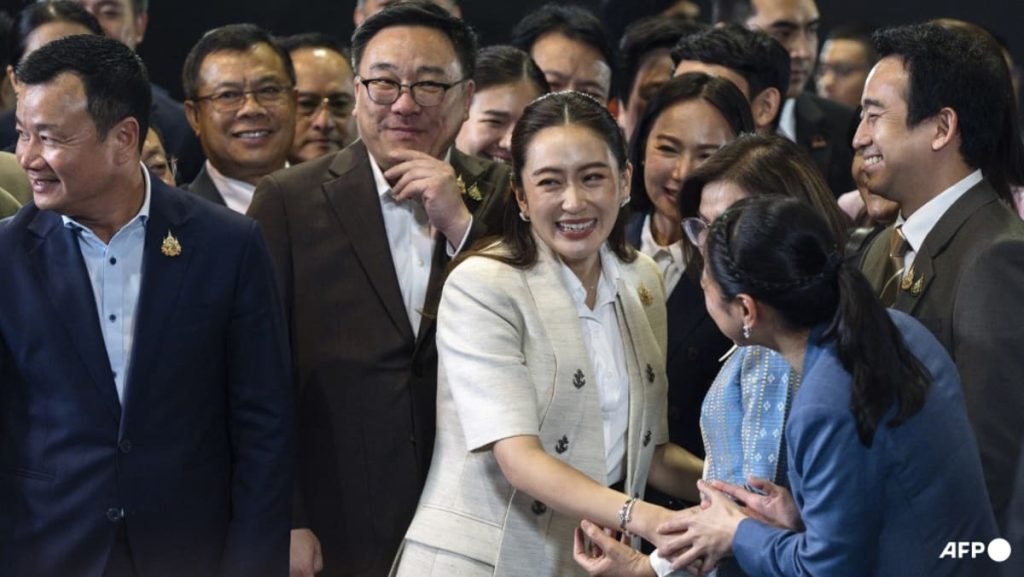The political landscape in Thailand is filled with hostility and instability, as evidenced by the recent fall of Prime Minister Srettha after less than a year in office. This serves as a stark reminder of the challenges faced by current Prime Minister Paetongtarn, given the country’s history of coups and court rulings that have disrupted political parties and ousted governments. The conflict in Thailand is between parties with mass appeal and a powerful group of conservatives, old-money families, and royalist generals who hold significant influence in key institutions, leaving the Shinawatras and their allies particularly vulnerable.
Recent court rulings have dissolved the anti-establishment Move Forward Party, winners of the 2023 election, over a campaign to amend a law against insulting the crown, which was seen as a threat to the constitutional monarchy. In response, the opposition has regrouped under a new party called People’s Party, signifying a shift in political dynamics. The fragile truce that had been established between Thaksin Shinawatra and his rivals in the establishment and military old guard has now broken down, leading to increased tensions and uncertainty in the political landscape.
The decision to put Paetongtarn in a leadership position during such a critical time has surprised many analysts, as they had expected Thaksin to delay his dynasty and shield his daughter from the battles that led to his own downfall and that of his sister Yingluck. This move is considered risky, as it places Paetongtarn in a vulnerable position and exposes her to the challenges that her family has faced in the past. Analysts believe that this is a significant gamble for Thaksin, as the failure of Paetongtarn to restore the economy and strengthen the party could jeopardize the entire Shinawatra dynasty.
Nattabhorn Buamahakul, Managing Partner at Vero Advocacy, describes the Shinawatras’ strategy as risky and puts Paetongtarn in a precarious position. Tiitipol Phaddeewanich, a political scientist at Ubon Ratchathani University, views this move as a major gamble for Thaksin, acknowledging the potential risks involved. The success or failure of Paetongtarn in her new role as Prime Minister will have significant implications for the future of the Shinawatra dynasty, as well as for the People’s Party, which has been gaining momentum following the dissolution of the Move Forward Party.
Overall, the political climate in Thailand remains fraught with tension and uncertainty, with the power struggle between the Shinawatras and their allies on one side, and conservative groups and royalist generals on the other. The dissolution of political parties, court rulings, and coups have added to the instability in the country, leaving Prime Minister Paetongtarn in a challenging position as she navigates the complexities of Thai politics. The outcome of this power struggle and the success or failure of the Shinawatra dynasty will have far-reaching consequences for the future of Thailand and its political landscape.


